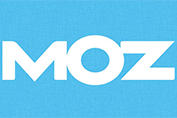Our friends at Moz churn out fantastic search and SEO advice regularly. Their primary purpose is to keep web professionals apprised of changes and trends in the search market. So it's no surprise that they tell us frequently that we must stay abreast of the way search -- particularly Google -- affects how we market ourselves.
In its article "It's Time to Stop Doing On-Page SEO Like It's 2012", Moz points out the ind of advice we at Eternity give to our clients every day. And they help diffuse commonly-held misconceptions and outdated practices -- practices that once worked, but now can get your site de-ranked in Google.
Our top three takeaways from the article, with respect to optimizing your pages using timely rules:
1. Keyword repetition: This is one of the old-school methods that don't matter too much any longer to Google. Rather than repeat keywords to try to gain relevancy, the "key" (excise the pun) is to place relevant keywords in appropriate places, like page titles and headlines.
2. Related topics and keywords are essential: Be sure to use related topics and related keywords to link from page to page within your site. It helps the user understand the topic, and helps Google see that one or m ore pages in your site are relevant to a single topic or a group of related topics.
3. On-page tagging is as important as external links: A lot of attention has been paid of late to the number of external sites linking to your page. And it is important to gain validity through external links. But it's more important to be sure your page tag format is correct, and that you are using all relevant on-page content tactics you can. With strong titling, linking, and content, links to the page form other sites may not matter as much.

